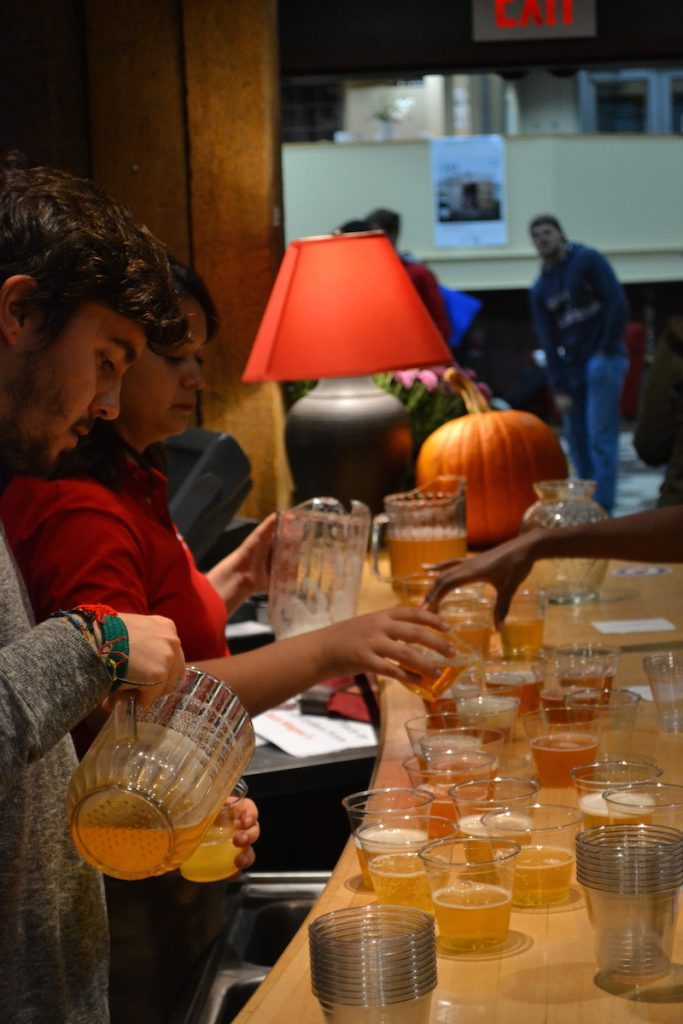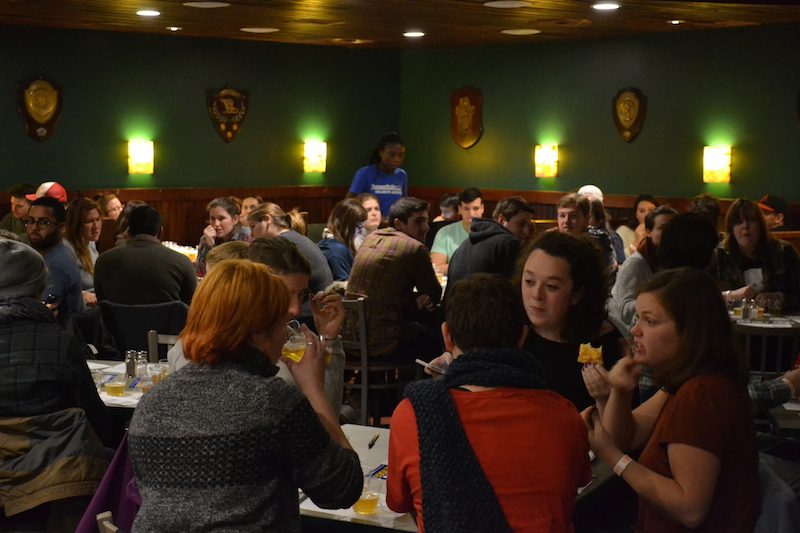Students Practice Ranked-Choice Voting on Maine Brews
By Henry Bredar '19
To try to make the ballot initiative clearer to their peers, Rob Gaines ’17 and Damian Ramsdell ’17, leaders of the coalition of Bowdoin students who support Question 5, proposed a beer tasting. Students gathered in Jack Magee’s to taste test four locally brewed beers and vote on their favorites using the ranked-choice style.
The options were Allagash Brewery’s Saison, Maine Beer Company’s Lunch, Funky Bow’s So Folkin’ Hoppy, and Banded Horn Brewery’s Pepperell Pilsner. Students aged 21 and up were given five ounces of each beer and asked to rank them based on taste. Gaines then tallied the score. While Allagash Brewery came out on top, its route to victory was a bit more complicated than simply receiving the majority of votes.



Gaines and Ramsdell began their campaign to raise support for ranked-choice voting during the last academic year, when the ballot initiative was first proposed. In the current system, Gaines explained, “You hand in your ballot, and either your candidate wins or your ballot goes in the garbage.” Gaines said he believes this system does not award the American voter enough voice, suggesting that “the way people often vote is that there is one candidate who I really, really hate…so I’m not going to vote for my favorite candidate, I’m going to vote for the candidate who has the best chance to beat [the other].”
Maine has a tradition of supporting third-party candidates, from current Senator Angus King to Governor James Longley. That being said, nine of the last 11 governors of Maine were elected without simple majority. Ranked-choice voting is one proposition to increase the desirability of elected politicians. Ranked-choice could also increase the chances of election for third party candidates.
Ranked-choice voting ensures that no candidate is elected without a simple majority, or more than 50 percent of the vote. In the race between the four local breweries, none of the breweries would have had a simple majority if the election had been run without ranked voting. While Allagash did receive the most votes, it only won 20 number-one picks in total, or 43 percent of votes. That means the beer election would have produced a winning candidate with which 57 percent of the population disagreed. In this case, however, ranked-choice voting did also ensure that Allagash was the most desirable candidate of the four options.
Funky Bow received the fewest votes. So while Funky Bow was eliminated, the second choices of those who had selected Funky Bow then received a vote. Banded Horn was eliminated next, so the second choice of its nine supporters was counted. In this way, it was determined that Allagash was still the most desirable beer — or candidate — even after weighing the preferences of voters who did not choose Allagash first.
Despite ranked-choice voting polling at over 55 percent statewide, there are arguments against this voting method. Opponents argue that it is unconstitutional because it appears to award more than one vote per citizen. Others say the system is too complicated and expensive. Both Gaines and Ramsdell counter that ranked choice has been deemed constitutional in four states already, and that Maine is due for an election software update in 2018 – the year Question 5 would be first implemented should it be approved – and that it would cost Maine no more than it already anticipates spending on this upgrade.
The McKeen Center will be shuttling students to and from Brunswick polling stations all day next Tuesday to ensure students have the ability to make their voices heard.



